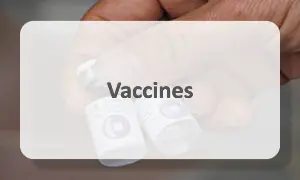Vaccines

Vaccines have become a cornerstone of modern medicine, playing a crucial role in the prevention of infectious diseases. As biological preparations designed to stimulate the immune system, vaccines help the body produce antibodies that protect against specific pathogens, such as viruses and bacteria. The significance of vaccination extends beyond individual health; it contributes to the overall well-being of society by reducing the spread of diseases and preventing outbreaks. This article explores the history, types, administration methods, and future of vaccines, highlighting their importance in public health.
Immune Protection
The primary goal of vaccines is to provide immune protection. Vaccines stimulate the production of antibodies, which help the body recognize and neutralize pathogens. When a person is vaccinated, their immune system "remembers" the infection, allowing for a rapid response in the future. This creates protection not only for the vaccinated individual but also for those around them, reducing the risk of disease transmission.
Variety of Vaccine Types
There are many types of vaccines, each designed to combat specific diseases. Vaccines can be based on killed or weakened viruses, as well as on proteins derived from microorganisms. For example, live attenuated vaccines contain weakened forms of viruses that can elicit an immune response without causing disease. mRNA vaccines, such as those developed by Pfizer-BioNTech and Moderna, represent a new approach that uses genetic information to stimulate an immune response.
Methods of Administration
The most common method of vaccine administration is through injection, which can be subcutaneous, intramuscular, or intravenous, depending on the type of vaccine and the target population. However, alternative methods such as oral administration, where the vaccine is taken in liquid form, or nasal sprays have emerged, providing convenience and ease of use, particularly for children. These various methods allow for the adaptation of vaccination to the needs of different population groups.
Herd Immunity
Vaccination plays a crucial role in the development of herd immunity, which protects those who cannot be vaccinated for medical reasons, such as individuals with weakened immune systems or allergies. When a sufficient number of people in a community are vaccinated, it reduces the likelihood of disease transmission, thereby protecting vulnerable groups. Herd immunity is a key element in combating epidemics and pandemics.
Effectiveness in Prevention
Scientific research continues to confirm the effectiveness of vaccines in preventing infectious diseases. Vaccines not only protect against infections but also reduce the risk of virus transmission. For instance, studies conducted in 2021 confirmed that vaccinated individuals were less likely to contract COVID-19 and experience severe symptoms, underscoring the importance of widespread vaccination. Vaccination is one of the most effective ways to prevent the spread of infectious diseases and avert epidemics.
Historical Context
The history of vaccination dates back to the late 18th century when Edward Jenner developed the first vaccine against smallpox. This groundbreaking achievement laid the foundation for modern immunization practices and opened the door to the development of vaccines for various other dangerous diseases. Over the years, vaccination has evolved significantly, with advancements in technology leading to the creation of more effective and safer vaccines.
Modern Achievements
Recent advancements in vaccine technology have been remarkable, especially with the introduction of mRNA vaccines, such as those developed by Pfizer-BioNTech and Moderna. These vaccines have demonstrated high efficacy in combating COVID-19 and represent a significant leap forward in vaccine development. The ability to rapidly create and deploy these vaccines has changed the landscape of public health and has the potential to revolutionize how we approach vaccination for other infectious diseases.
Personal Experiences
Personal experiences with vaccination vary widely. Many individuals report that the vaccination process is quick and relatively painless, while others emphasize the importance of getting vaccinated to protect themselves and their loved ones, especially during a pandemic. The emotional and social aspects of vaccination cannot be overlooked, as they play a significant role in public acceptance and participation in vaccination programs.
Myths and Facts
Despite the overwhelming evidence supporting vaccine safety and efficacy, myths and misconceptions persist. One common myth is the unfounded claim that vaccines can cause autism. Scientific studies have repeatedly debunked this myth, reinforcing the message that vaccines are safe and essential for public health. Addressing these misconceptions is crucial for increasing vaccine acceptance and ensuring higher vaccination rates.
Global Perspective
From a global perspective, vaccination is vital for improving public health worldwide. International organizations, such as the World Health Organization (WHO), actively work to ensure access to vaccines in developing countries, helping to reduce morbidity and mortality rates associated with infectious diseases. The global effort to vaccinate populations is essential for achieving herd immunity, which protects those who cannot be vaccinated for medical reasons.
Ethical Aspects
Ethical considerations surrounding vaccination also warrant attention. The debate over mandatory vaccination and vaccine accessibility raises important questions about individual rights and public health responsibilities. Striking a balance between personal freedom and the collective good is essential for effective vaccination policies.
Future of Vaccination
Looking to the future, we can anticipate the emergence of new vaccination approaches, such as DNA-based vaccines and more effective delivery methods. These innovations have the potential to significantly enhance protection against infectious diseases and expedite the vaccination process, ultimately leading to better health outcomes for populations worldwide.
In conclusion, vaccines are a vital tool in the fight against infectious diseases, providing protection for individuals and contributing to the overall health of society. With a rich history, ongoing advancements in technology, and a commitment to addressing public concerns, vaccination remains one of the most effective strategies for preventing the spread of diseases and averting epidemics. As we move forward, continued education, research, and global collaboration will be essential in maximizing the benefits of vaccination for all.